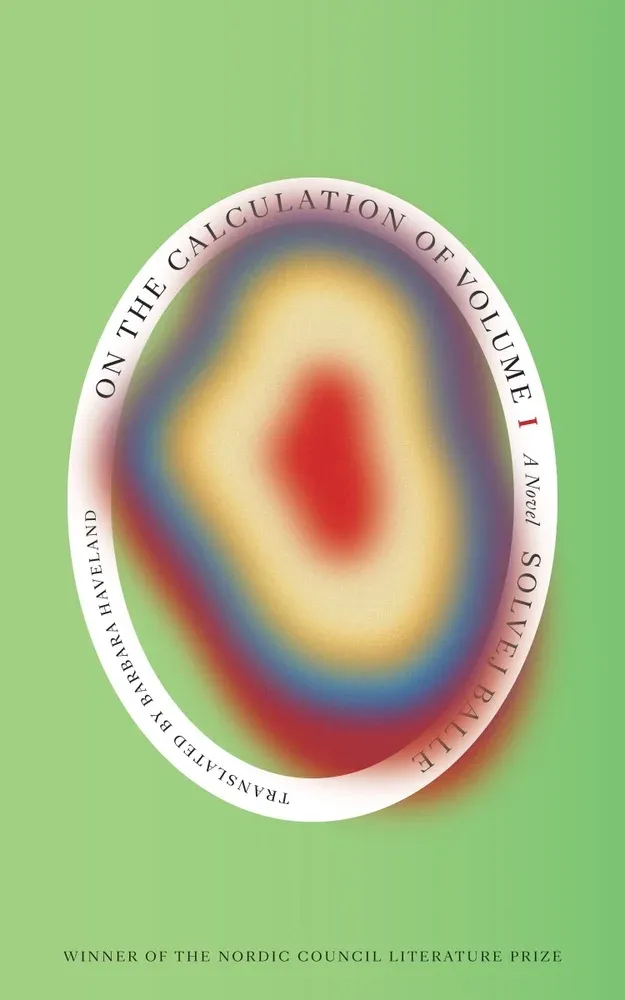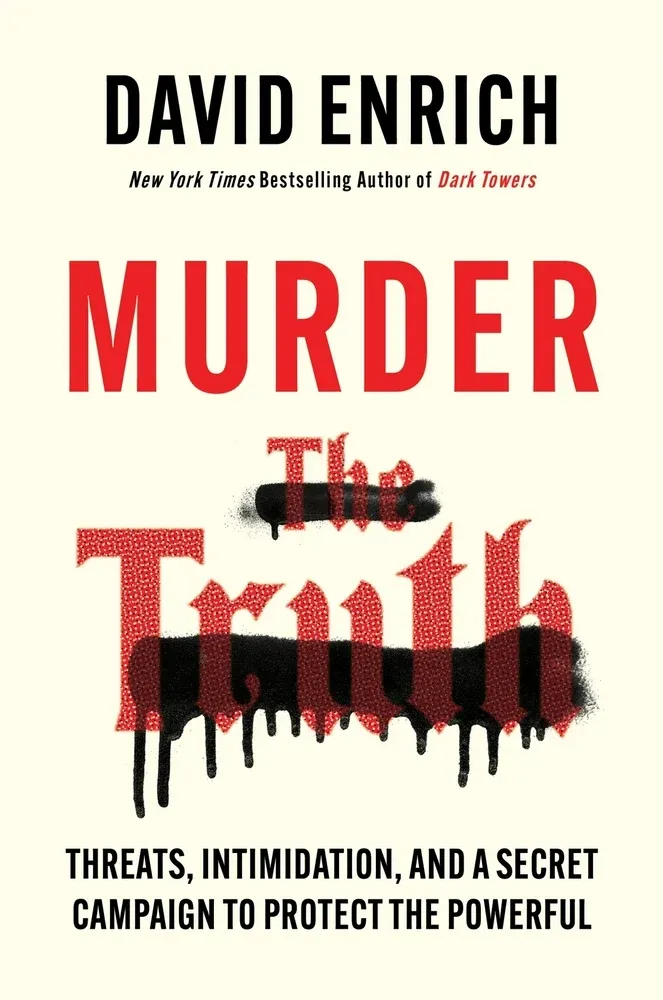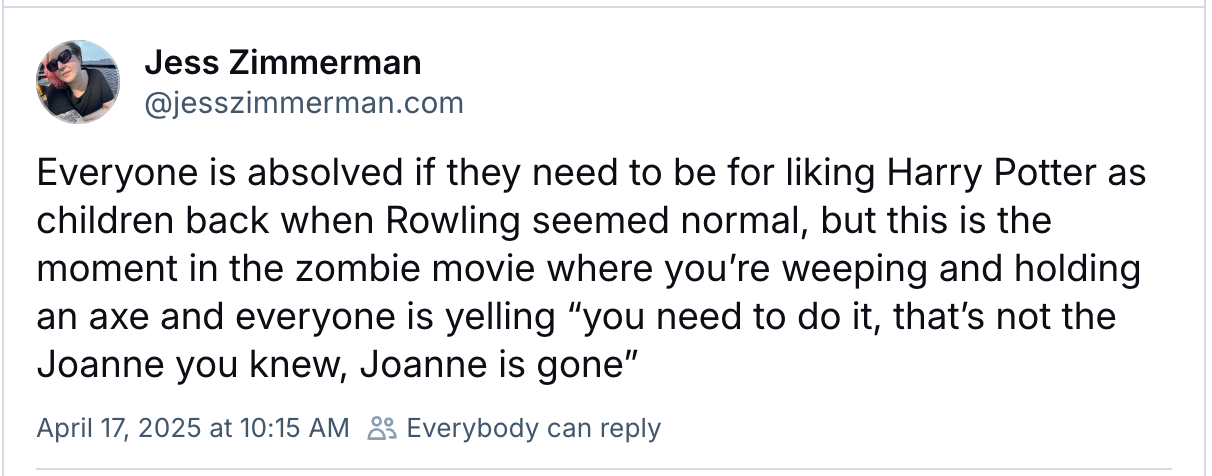The Maris Review, vol 51
In Solvej Balle's 7-volume series the interminable day is a rainy one in November. Which immediately made me wonder if Balle is a GNR fan.
What I read this week

On the Calculation of Volume (Book I) by Solvej Balle, translated by Barbara J. Haveland
In my mind all time loop stories play by Groundhog Day rules, with Bill Murray waking to Sonny & Cher each morning of a never-ending winter day. But in Danish writer Solvej Balle's 7-volume series (only the first two are out in the US for now, but it is oh so trendy) this time around the interminable day is a rainy one in November. Which immediately made me wonder if Balle is a GNR fan. What if Guns N Roses's "nothing lasts forever even cold November rain" actually did last forever? Poor Stephanie Seymour.
Our series heroine is Tara Selter, a not-very-wacky antique bookseller who runs a company with her husband, and her predicament isn't all that wacky either. The book starts on her 121st day of November 18th and it soon becomes clear that she doesn't start over fresh every time she wakes up (her hair keeps growing; much of the food she eats in one remains eaten the next day so that the shelves at her local market start to grow bare) but she doesn't know the why or how of the details. As she experiments with small changes and figures out new ways to live, the book quickly becomes about the profound loneliness of being on your own distinct timeline with no understanding of the rules of how it works (if there are any rules).
I've never seen a story of a marriage written this way. For much of the book Tara chooses to live at home with her husband, but unannounced in their guest room. She was meant to be away on business in Paris, and after the 10th or so time of explaining to Thomas why she's home and what's happened to her, she settles for being near to but apart from her husband, to listen to the sounds of his routine that she's come to know so well without disturbing his own sense of time. She becomes her husband's roommate, his admirer from afar, even his stalker.
On the Calculation of Volume is a thrilling example of what an author can do with narrative when time doesn't work in a traditional way. It's a tragic story with so many moments of hope. We see Tara having lived 365 days of November 18th, and we see her want to continue to find a way to live and to thrive: "I was on a journey. On my way home, I thought. I was traveling on an open ticket, with no itinerary. I journeyed through the minutiae of the streets, in a universe replete with minor incidents, a host of objects and occurrences and sensations all crowded together in my memory."

Murder the Truth: Fear, the First Amendment, and a Secret Campaign to Protect the Powerful by David Enrich
In 1964 the Supreme Court decided the case of the New York Times versus Sullivan to bipartisan approbation. Sullivan put the burden on the plaintiff in a defamation suit to prove that a journalist purposely intended to get the facts of a story wrong in order to cause harm. The need to prove "actual malice" allowed for journalists to report on powerful people without the fear of retribution, which, last time I checked, is important for a free press.
Journalist David Enrich's new book is about the fairly recent campaign by a bunch of shady ultra wealthy people (yes, of course Trump is a ringleader) to overturn Sullivan and make it easier for powerful people to effectively quash all journalistic criticism of them through litigation. Trump has always been a litigious little fuck who has sued a variety of book publishers, but there was a real turning point when, in his first term as president, he declared that the press were the enemy of the people. The Free Speech Absolutists were very quiet about this.
Enrich takes us through a variety of cases that have chipped away at the precedent established by Sullivan over the past decade or so, from local newspapers battling land developers to Hulk Hogan's suit against Gawker, funded by Peter Thiel, that ended with the shuttering of the publication. Although Enrich does devote a strange amount of time AJ Daulerio's deep love of Pearl Jam, it's still nice to get some personal touches amid a flurry of names of cases and judges and attorneys. We see how the wealthy can demolish publications through legal avenues even if the publication is in the right (see TechDirt), how even the payment of a deductible before libel insurance kicks in can be enough to ruin local journalistic endeavors.
The book ends with Sarah Palin's impending retrial of the defamation suit she brought against the New York Times. Will her case make it all the way to the Supreme Court, where Clarence Thomas is raring to overturn Sullivan? Only time will tell. All I can say is that the New York Times has done a lot of fucked up shit lately, but defaming Sarah Palin is very much not one of them. We live in hell.
Bad week for JKR and Neil Gaiman fans

Ugh.
What does a villain look like? Do they look like a gray and flat-faced Ralph Fiennes playing He Who Shall Not Be Named from the Harry Potter series? Or do they look more like the photo (which I won't be linking to) of a hate-filled billionaire who helped to fund the UK's war on trans people celebrating with a cigar and a glass of wine the recent decision of the UK Supreme Court to rule that trans women are not women?
All I know is it's time to start protesting the new HBO Harry Potter TV series (I was rooting for you, John Lithgow. We were all rooting for you. How dare you?). And maybe it's time to start looking at Joanne's pseudonym Robert Galbraith, who is still churning out books for Hachette.
Challenging Joanne for supervillain of the week status is former avowed feminist Neil Gaiman, who is now suing a former employee for breaking the NDA she signed in 2021 after he... did something to her that required the signing of an NDA? I have to be honest, when rape allegations first started coming out about Gaiman I expected that he might be one of the "canceled" men who would want to publicly "learn" from the experience, listen to women, etc. The work of Neil Gaiman is much less morally complicated now that he's decided to double down on being a rich man who oppresses women who once worked for him. Not interested in trying to separate the art from the artist not even a little bit.
New releases, 4/22

The Seers by Sulaiman Addonia
Exit Zero: Stories by Marie-Helene Bertino
Major Arcana: A Novel by John Pistelli
The Acid Queen: The Psychedelic Life and Counterculture Rebellion of Rosemary Woodruff Leary by Susannah Cahalan
Atavists by Lydia Millet
The Golden Hour: A Story of Family and Power in Hollywood by Matthew Specktor
The Hollow Half: A Memoir of Bodies and Borders by Sarah Aziza
Sister, Sinner: The Miraculous Life and Mysterious Disappearance of Aimee Semple McPherson by Claire Hoffman
Medicine River: A Story of Survival and the Legacy of Indian Boarding Schools by Mary Annette Pember
Zeal by Morgan Jerkins
Matriarch: A Memoir by Tina Knowles
Notes to John by Joan Didion


